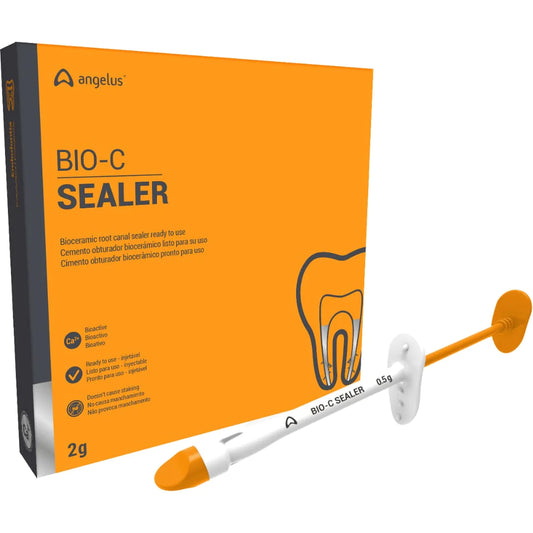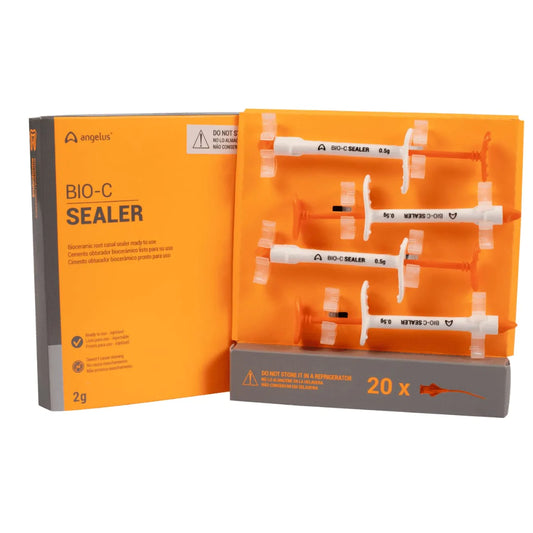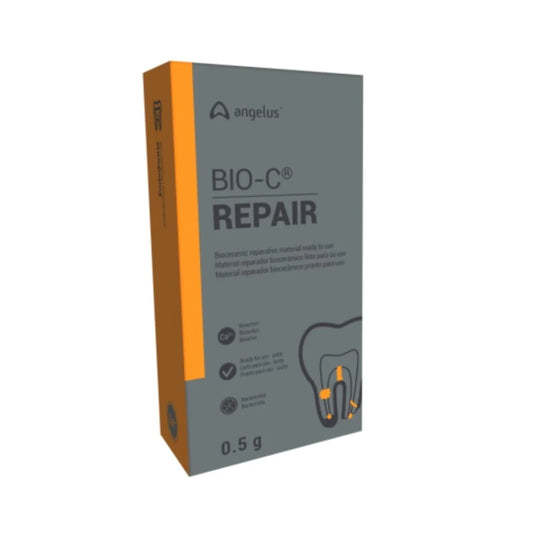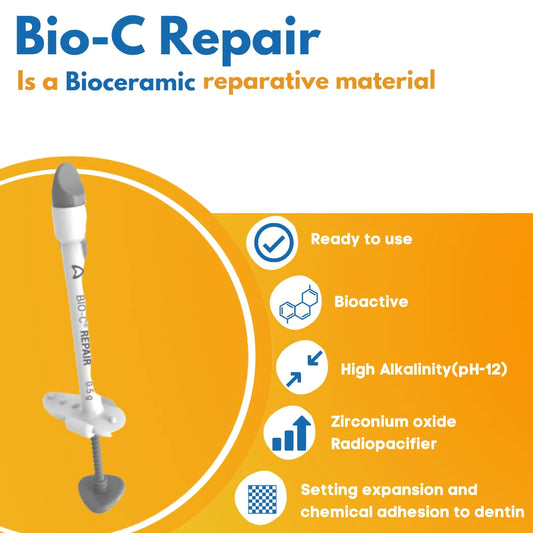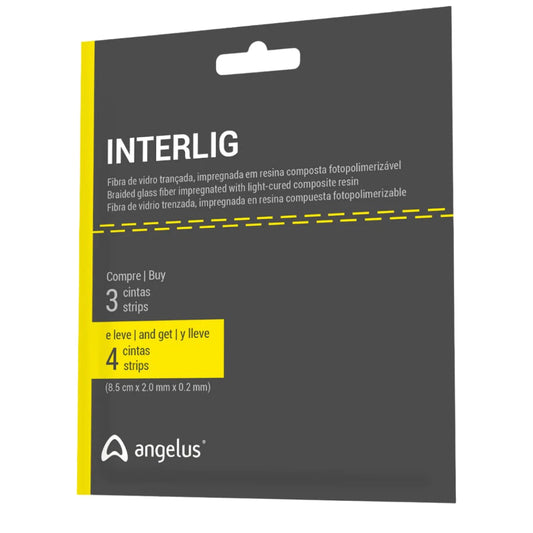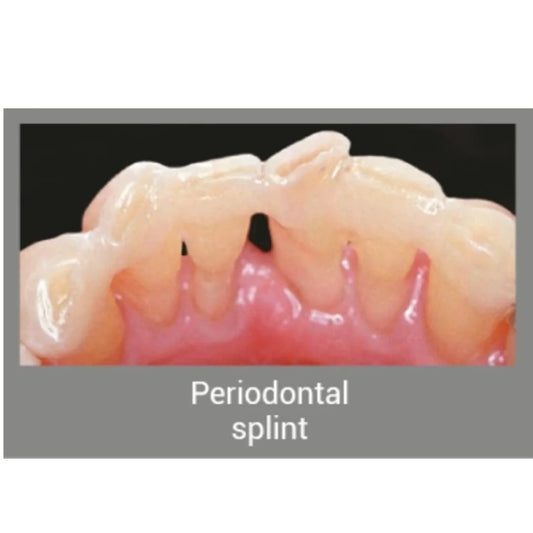
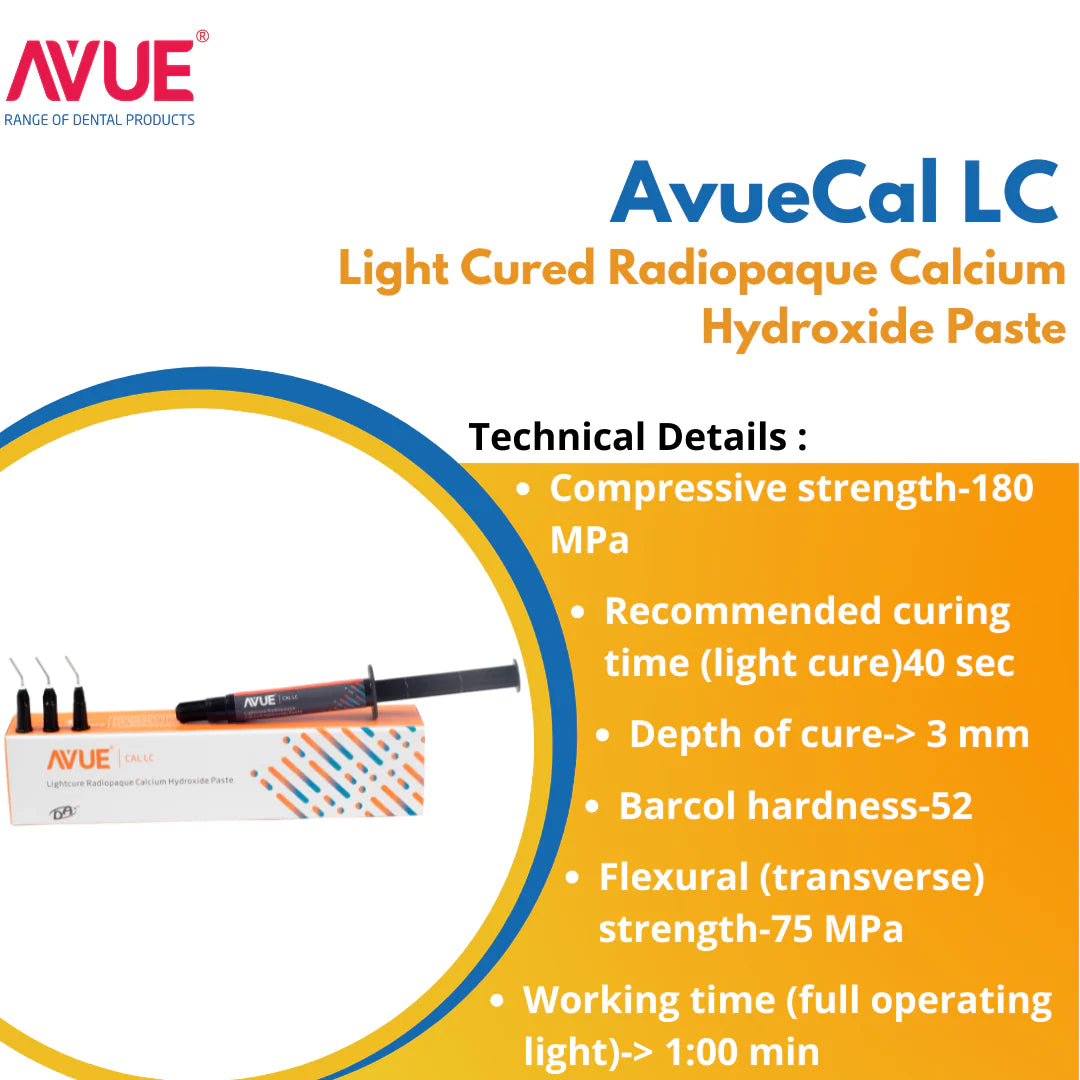
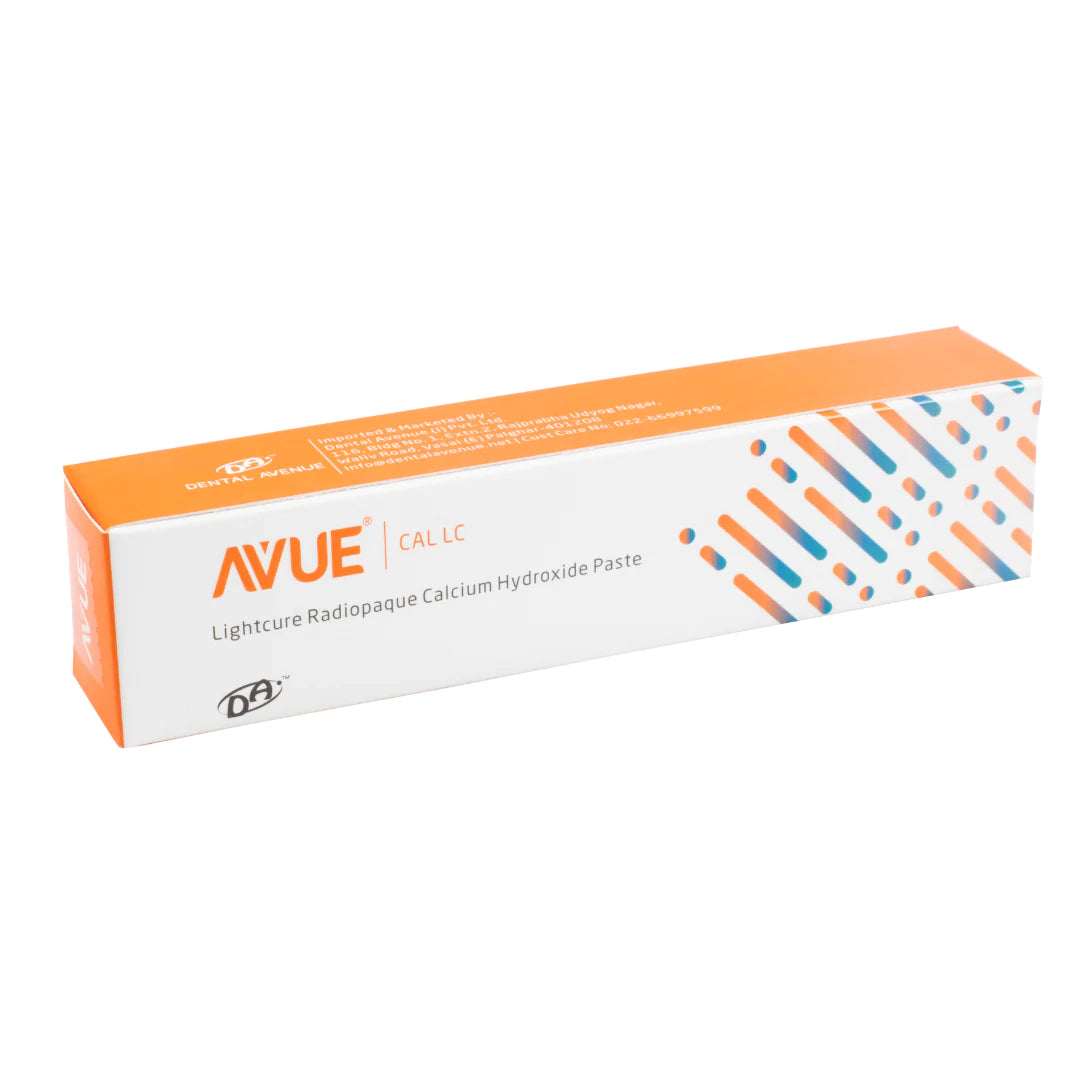
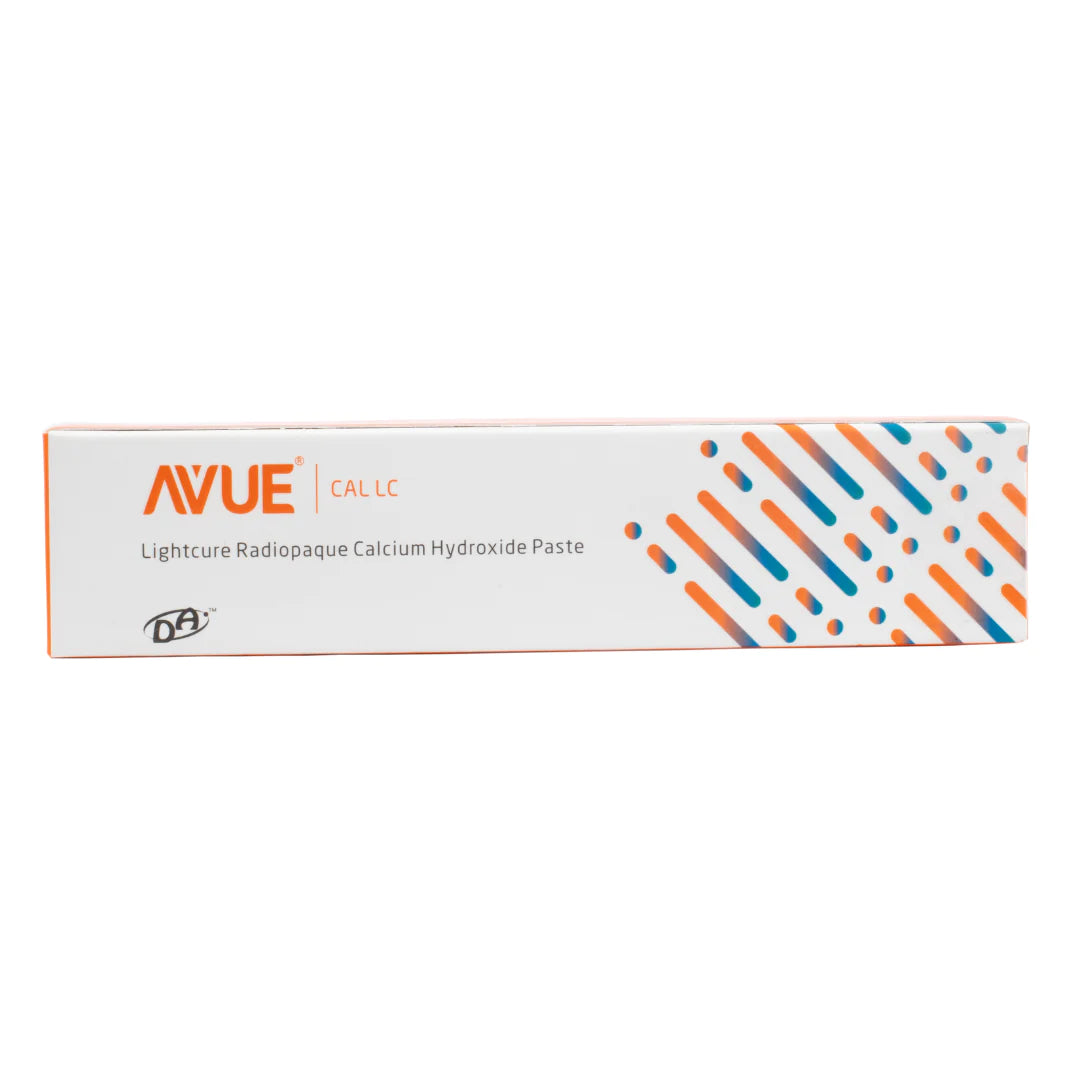
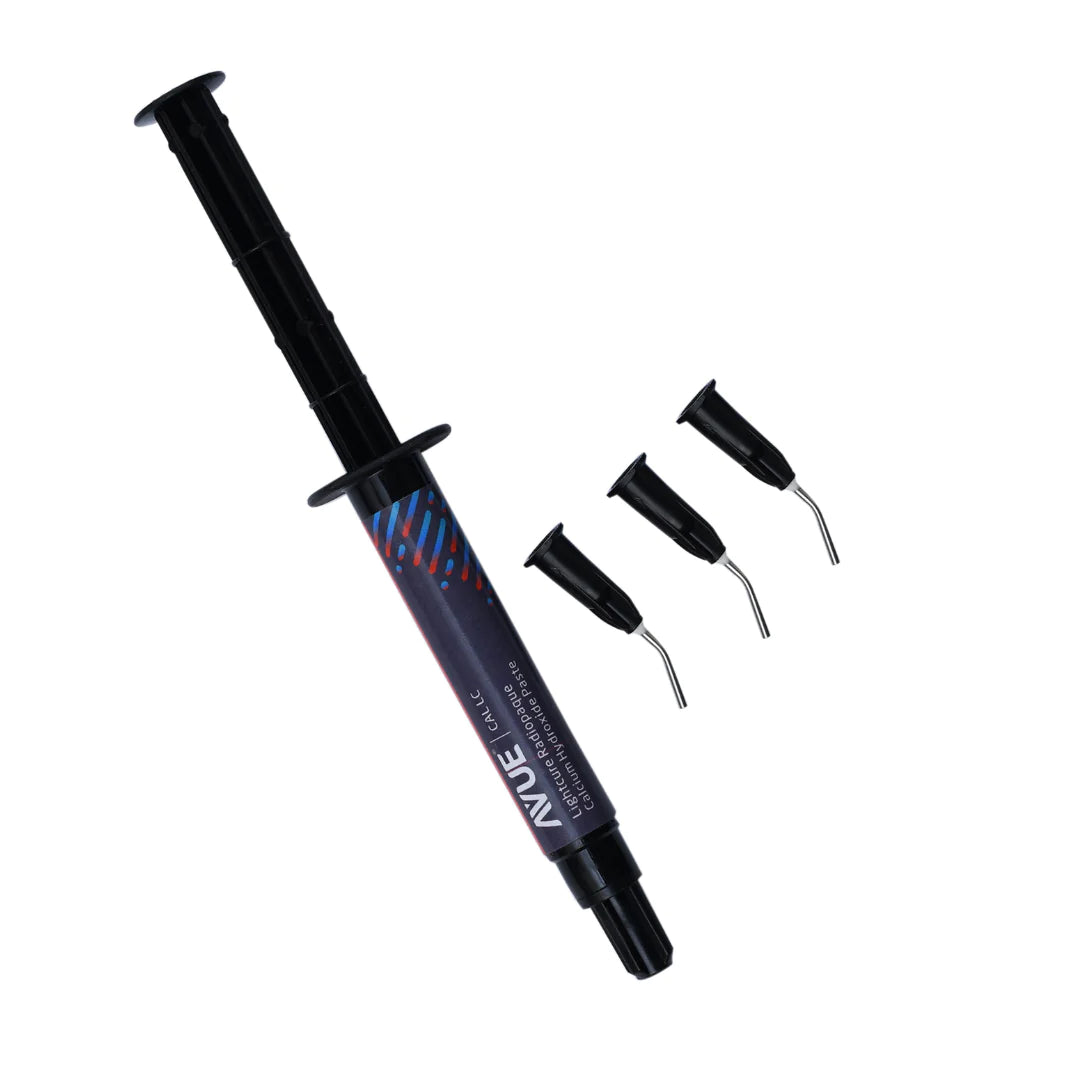

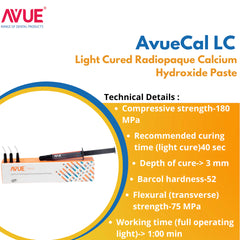
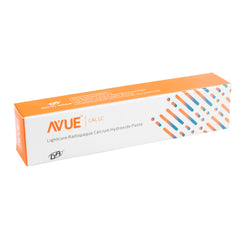
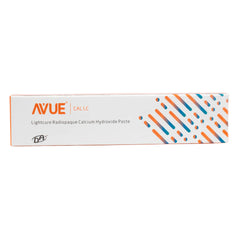
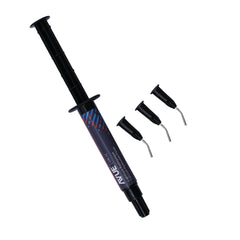
AVUE AvueCal LC - Light Cure Calcium Hydroxide Paste
- Rs. 1,250
Rs. 1,450- Rs. 1,250
- Unit price
- per
Description
xAVUE AvueCal LC - Light Cure Calcium Hydroxide Paste
Calcium hydroxide cements are used for lining specific areas of deep cavities or for direct pulp capping. The antibacterial action of calcium hydroxide makes Avuecal LC useful in indirect pulp-capping procedures involving carious dentin.
A light-cured calcium hydroxide liner consists of calcium hydroxide and barium sulfate dispersed in a resin, similar to what is used in some dental composites.
The important properties of calcium hydroxide cements are mechanical and thermal properties, solubility, and pH.
Secondary dentin formation
Avuecal LC an stimulate the formation of protective Secondary Dentin bridges when applied to direct pulp exposures Pulp protection under a composite before etching and under any type of restoration when residual dentine layer is thin.
Pulp capping
Done on the exposed pulp act as a barrier, protect the dentin‑pulp complex, and maintain its vitality. AvueCal LC-Calcium hydroxide [Ca(OH)2] cements are the most suitable agents for direct and indirect pulp capping which have the ability to release hydroxyl (OH) and calcium (Ca) ions upon dissolution.
Calcium hydroxide was introduced in dentistry in 1921 and has been considered
the “gold standard” of direct pulp-capping materials for many years. This material
is considered to have excellent antibacterial properties
AvueCal LC has High Ph
Its alkaline pH (pH 9–11) stimulates the formation of secondary/reparative dentin in direct contact with the pulp
Acts as remineralizing Agent
“remineralizing agent” in pulp capping played an important role in the reparativedentinogenesis in proximity to pulp tissues due to the release of Ca and OH ions.
High compressive strength & Low solubility
Avuecal LC can be used below composite or GIC to prevent or protect pulp from any kind of thermal or chemical injury,Avuecal LC High radiopacity and minimal solubility
Technical Details
xWorking time (full operating light) - >1:00 min
Depth of cure (40 sec) - >3mm
Compressive strength - 180 MPa
Additional Information
xNet Contents
x




Related Products
Recently Viewed Products

- Choosing a selection results in a full page refresh.

